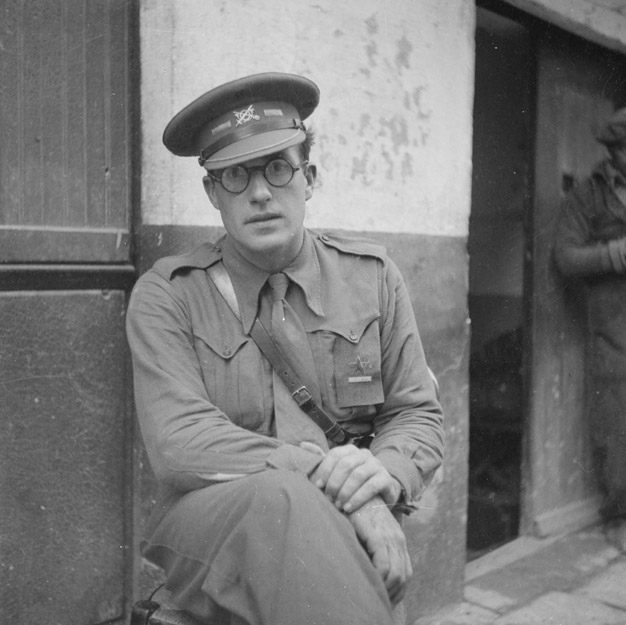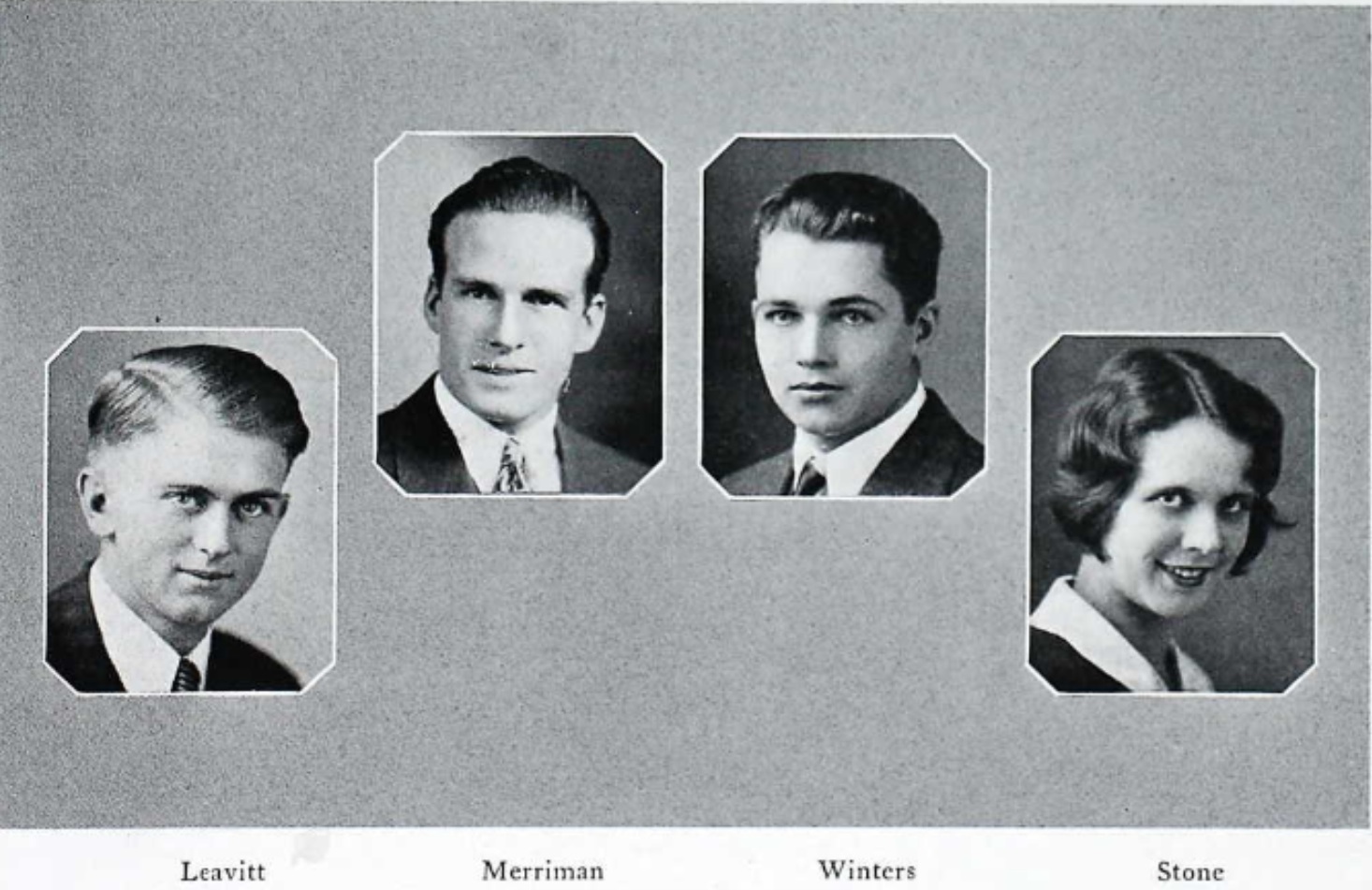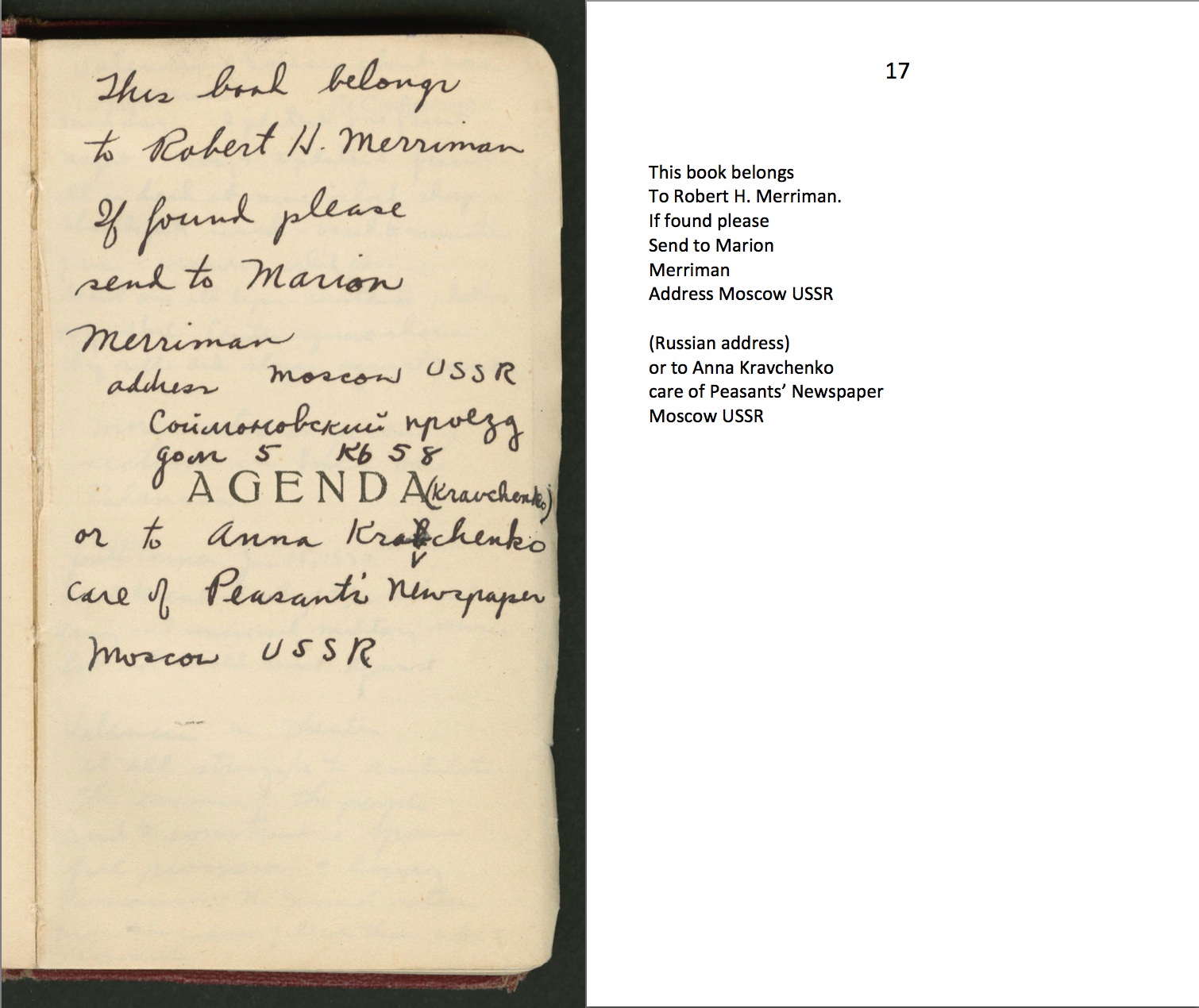Robert Hale Merriman was born in Humboldt, California, on November 17, 1908 to Henry and Faye Merriman. Henry was reported in some histories to be a lumberjack but by 1920 he was living in Santa Clara, California, and working as a vulcanizer of tires in San Francisco, a profession he kept until at least the 1940s. Henry and Faye moved to Los Angeles during the Depression and settled in Mojave, California in the late 1930s. As we progress with Robert’s history, we will see a letter from Faye (“Mother”) to Robert later in 1937.
Robert Merriman was to become the Commander of the Abraham Lincoln Battalion in Spain, then head of the training unit at Albacete, Spain, and subsequently Chief of Staff of the XVth Brigade, which encompassed most of the English-speaking units of the International Brigades. His diary is a chronicle of the development of the Brigade over the period from January to November 1937. By studying it, we learn quite a bit about the actions of the Brigade on a day-to-day basis.

In 1931, Bob Merriman was a cadet officer at the University of Nevada at Reno, graduating from the University on May 9, 1932. His biography at the Abraham Lincoln Brigades Archives (ALBA) states that he married Marion Stone on his graduation day. Marion appears frequently in his diary (she is mentioned often in the diary so we will discuss Marion in more detail as the year progresses).


Bob Merriman attended the University of California at Berkeley as a graduate student, but according to some biographies he was also a professor. The evidence, however, indicates that he had teaching duties at Berkeley as an assistant instructor the Economics Department, but it is not clear that he earned an advanced degree.
By January 1935, Robert and Marion left the U.S. on a Newton-Booth Traveling Fellowship in Economics¹ and traveled to Moscow where it was widely believed by his critics that he attended the Lenin School. Rolfe², Eby³ and Barry McLoughlin4 contradict this view and state that Merriman was in Moscow to study agricultural economics. Comintern documents say that Merriman was never a member of the Communist Party but as we will see in the diary, this seems improbable. It was from Moscow that they would go to Spain in 1937 when the need arose for Internationals to fight in Spain. In Paris in January 1937, Robert met up with Milly Bennett (Mildred Mitchell), a reporter, and they travelled to Spain together. He told Bennett he was going to study collective farming.
Milly Bennett’s papers are in the Hoover Archives at Stanford University and she recalls the meeting:
I was poking through the books at Brentano’s {in Paris}, looking for a good, short history of Spain, when I saw Bob Merriman, snatching books from the shelves by the fistful with his hamlike hands. Good old Bob from Moscow! I yelled. He yelled. We fell into each other’s arms. What was I doing in Paris. Why wasn’t I in New York where I’d started last month? What was he doing in Paris? Why wasn’t he in Moscow cramming his economics?
“I’ve got a job covering the Spanish war. I leave tonight”
“Wait for me,” Bob said, “wait until tomorrow and I’ll go with you.”
“You! What does Marion (his wife) say? You’ll get killed. The foreign brigades are the shock troops. They have the biggest casualties.” (Twenty thousand French volunteers, hundreds of Slav, German, Italian political emigres had gone to Spain shortly after the outbreak of the war, July 18, 1936 and their ranks had been decimated.)
Bob said he expected to do some work on the new collective farms, but he didn’t look me in the eye when he said it.
“Nonsense. I was in Spain last month and cruised all over the place with that human dynamo Anna Louise Strong. What few collectives there are don’t need your advice.”
He said, alright, I am going to Spain to fight, but nothing I could say would change his mind. If Marion couldn’t, how could I. He’d had ROTC training at the University of Nevada and knew a little about machine-guns and he’d like to try it out fighting fascism.5
Milly would go on to tell her friends in a letter that she and Bob went to a Department store and were able to buy gas masks “which would fit over our hornrimmed glasses”, ammunition and Merriman bought himself a pistol.
According to this journal entry, Robert entered Spain, via train, on January 11, 1937. We will start Robert’s diary on January 11, 2014, to follow his career in Spain.

____________________________________
¹ Arthur Landis, The Abraham Lincoln Brigade, Citadel Press, 1967.
² Edwin Rolfe, The Lincoln Battalion, Random House, 1939.
³ Cecil Eby, Comrades and Commissars, Pennsylvania University Press, 2007.
4 Barry McLoughlin, Fighting for Republican Spain, Lulu.com, ISBN 9781291968392
5 Mildred Bennett, unpublished story, Mildred Bennett Archives (in file: carbons, drafts, notes Spain 1937), Hoover Institution Archives, Palo Alto CA
